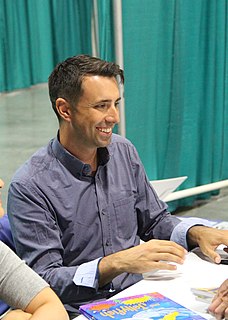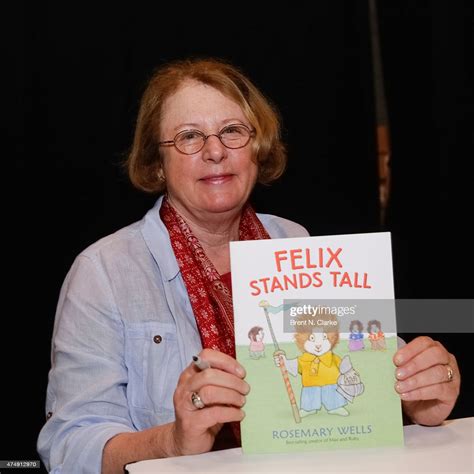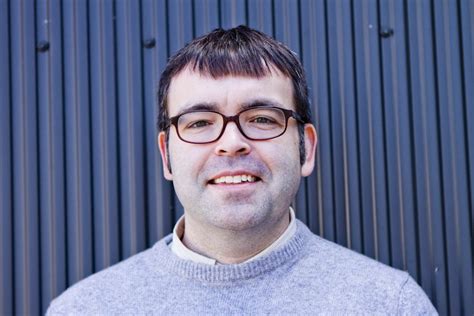Ein Zitat von James Branch Cabell
Ein Buch wird, sobald es gedruckt und veröffentlicht ist, individuell. Es wird durch seine Veröffentlichung ebenso entscheidend von seinem Autor getrennt, wie ein Kind bei der Geburt von seinen Eltern getrennt wird. Das Buch „bedeutet“ danach notgedrungen, sowohl grammatikalisch als auch tatsächlich, was auch immer dieser oder jener Leser damit meint.
Verwandte Zitate
Es gibt bereits Leute, die E-Books teilen, und sie tun es einfach, weil sie Bücher lieben. Sie kaufen kein zweites Exemplar eines Buches, schneiden den Buchrücken ab, legen jede Seite auf einen Scanner, lassen die .tif-Datei durch einen OCR (Optical Character Reader) laufen, bearbeiten die resultierende Ausgabe manuell auf Fehler und veröffentlichen sie dann online, wenn Du liebst das Buch nicht. Es kann bis zu 80 Stunden dauern, einen gedruckten Roman in ein E-Book umzuwandeln. Ich denke, wenn jemand da draußen bereit ist, 80 Stunden Arbeit in die Werbung für mein Buch zu investieren, dann würde ich es vorziehen, wenn er es auf eine Weise tut, die mir eine bessere Rendite bringt.
Ein Buch, das auf die Welt kommt, kann eine harte, harte Zeit sein. Und deine Gefühle stehen auf dem Spiel. Alles, worum es in der Veröffentlichung geht, ist in Wirklichkeit nicht das, worum es in Ihrem Schreiben geht. Ihr Schreiben entsteht aus etwas anderem, und die Veröffentlichung und der Auftritt in der Öffentlichkeit sind etwas anderes. Und diejenigen von uns, die veröffentlicht haben, auf welche Art auch immer wir veröffentlicht werden, haben großes Glück.
Sobald ein Autor ein Gedicht beendet hat, wird er lediglich zu einem weiteren Leser. Ich erinnere mich vielleicht daran, was ich in einen Text einbauen wollte, aber was zählt, ist, was der Leser dort tatsächlich vorfindet, was normalerweise sowohl mehr als auch weniger ist, als der Dichter geplant hatte.
Das Buch wird vom Leser fertiggestellt. Ein guter Roman sollte den Leser einladen und ihn an der kreativen Erfahrung teilhaben lassen und seine eigenen Lebenserfahrungen einbringen, mit seinen eigenen individuellen Lebenserfahrungen interpretieren. Jeder Leser erhält etwas anderes aus einem Buch und jeder Leser vervollständigt es gewissermaßen auf andere Weise.
Jeder Leser ist beim Lesen tatsächlich der Leser seiner selbst. Das Werk des Autors ist nur eine Art optisches Instrument, das er dem Leser zur Verfügung stellt, damit er erkennen kann, was er ohne dieses Buch vielleicht nie in sich selbst gesehen hätte. Dass der Leser in sich selbst erkennt, was das Buch sagt, ist der Beweis für die Wahrheit des Buches.
Häufig wird ein Autor bei einem Verlag „verwaist“. Das bedeutet, dass ein Redakteur sein Buch kauft und dann entlassen, befördert oder woanders auf einen anderen Job versetzt wird. Für den Autor ist es ärgerlich, weil plötzlich die Person, der Ihr Buch so gut gefallen hat, dass sie es gekauft hat, nicht mehr da ist, um Ihnen bei der Bearbeitung und Werbung zu helfen.
Ich habe als Kind angefangen zu schreiben. Aber ich kam erst auf die Idee, tatsächlich zu schreiben, als ich auf dem College war. Und ich war als Student im zweiten Jahr oder so – nein, vielleicht als Junior – nach Afrika gegangen und hatte einen Gedichtband geschrieben. Und das war mein Anfang. Ich habe dieses Buch veröffentlicht.
Ich habe als Kind angefangen zu schreiben. Aber ich habe erst im College daran gedacht, tatsächlich zu schreiben. Und ich war als Student im zweiten Jahr oder so, nein vielleicht als Junior, nach Afrika gegangen und habe einen Gedichtband geschrieben. Und das war mein Anfang. Ich habe dieses Buch veröffentlicht.
Ich wollte kein Buch als Stephen Kings Sohn schreiben, denn alles, was ich getan habe, war, geboren zu werden, und das ist keine große Leistung. Wenn das der Grund für die Veröffentlichung meines Buches wäre, wäre es das Papier, auf dem es gedruckt wurde, nicht wert. Ich wollte mein eigenes Ding machen.





































